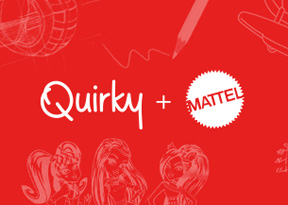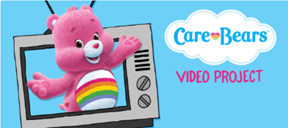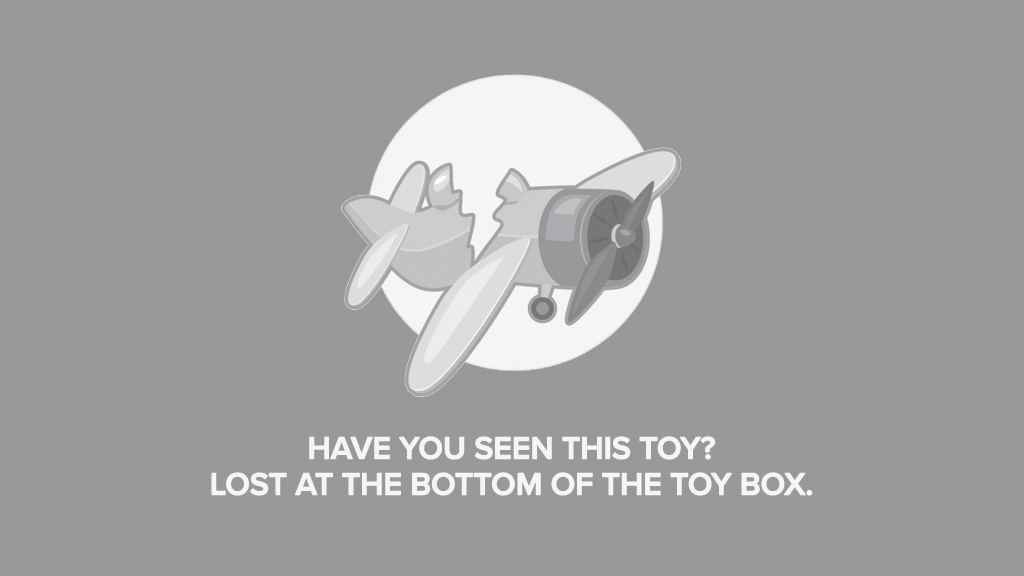 When it comes to creating great toys, games, or just about anything, it all boils down to the idea. Great things are often borne of flashes of inspiration, and more than ever, we’re seeing toy companies try to tap into the mental spark of their customers.
When it comes to creating great toys, games, or just about anything, it all boils down to the idea. Great things are often borne of flashes of inspiration, and more than ever, we’re seeing toy companies try to tap into the mental spark of their customers.
Recently, Mattel inked an agreement with Quirky, a creative community platform, to engage the public in re-imagining its world famous brands. We’re talking about Fisher-Price, Hot Wheels, Barbie—names that everybody recognizes. The way that the partnership would work, anyone can use Quirky’s online platform to submit ideas for toys, games, and family products. The public then votes on which ones seem the most promising, which go before a panel that includes industry experts, who cull the finalists down even further.
Powered by the people, this could be a great way for Mattel to modernize its lines, or find the next big toy idea. It makes sense for anyone in consumer products to want to tap the public’s collective brain. Sure, company executives and other “idea people” are the ones most in the know about any industry, but there’s always the problem of being too much of an insider. Sometimes you need the perspective of those on the outside in order to get the whole picture. For example, the maker movement, now considered among the most important trends for the future of the toy industry, began outside the mainstream.
The idea of toymakers appealing to online fans for ideas is not a new one: During the past year, Hasbro has asked the public to help update one of its best known board games, Monopoly. The company gave fans a list of popular House Rules through social media, with the most popular added to last fall’s re-release of the game. In a tangentially-related development, American Greetings Properties, which owns the Care Bears brand, recently teamed with another creative community platform, Tongal, for ideas for Care Bears TV spots. And just today, we learned that PleyWorld, a Lego rental service, will introduce a crowdsourced Lego dirigible set that received 5,000 fan votes.
 Based on what we’ve seen, it’s clear that crowdsourcing is a trend for the toy industry, and probably not going away anytime soon. But as we move from the ancillary to ideas that might boost or redefine existing brands—or even create new, profitable ones—the question becomes how companies weigh the value of those ideas.
Based on what we’ve seen, it’s clear that crowdsourcing is a trend for the toy industry, and probably not going away anytime soon. But as we move from the ancillary to ideas that might boost or redefine existing brands—or even create new, profitable ones—the question becomes how companies weigh the value of those ideas.
It’s true that no consumer good, successful or otherwise, exists in an idea vacuum. There are also the people who build the product, perform the market research, design packaging, and handle legal matters, not to mention the retailers and advertising agencies who help sell the public on it. On the other hand, while those other parties’ efforts heap value on the final good, one could argue that the product itself is still the deciding factor, which goes back to the importance of the idea.
In the case of Quirky, submitters of concepts that go into production are entitled to royalties. However, as far as I could tell, the process of determining how much that entails is somewhat unclear. It says on Quirky’s website: “In return for ownership of IP (intellectual property) in a commercialized product, we’ll pay the contributing user a perpetual royalty commensurate with the degree of contribution. At this time, we do not negotiate this rate with members of our community.”
Given the number of variables and moving parts involved for any product, it’s probably impossible (and unwise) to have a set formula for how different contributions are valued. But as this type of crowdsourcing becomes more commonplace, the issue of compensating the individuals behind the original idea is bound to pop up repeatedly, given the immense value of intellectual property, and the potential gulf between how integral it is in the minds of inventors versus companies.
People want to feel connected to their favorite products, and to create things that make others happy. But as the big dogs tap that passion to a greater and greater extent, let them not forget the little people, whose big ideas can mean amazing results.
For more commentary from Phil, check back often. Views expressed in this column are solely those of the author and do not necessarily reflect the views of The Toy Book as a whole. We hope that you will share your comments and feedback below. Until next time!

